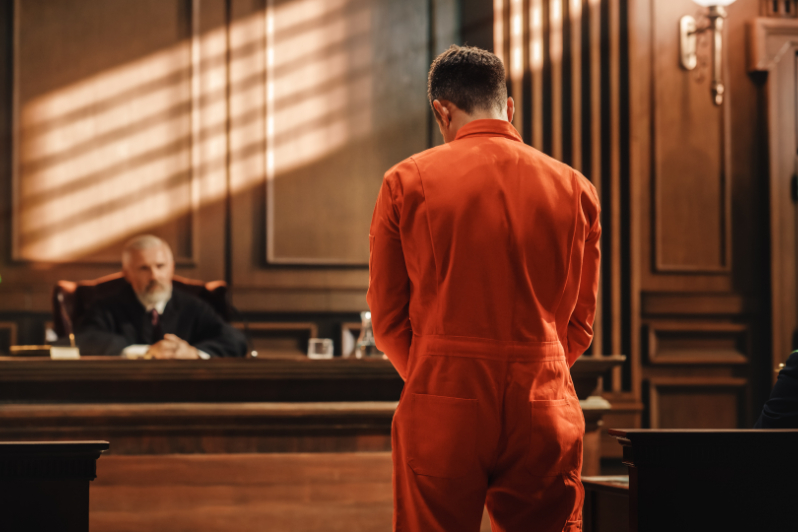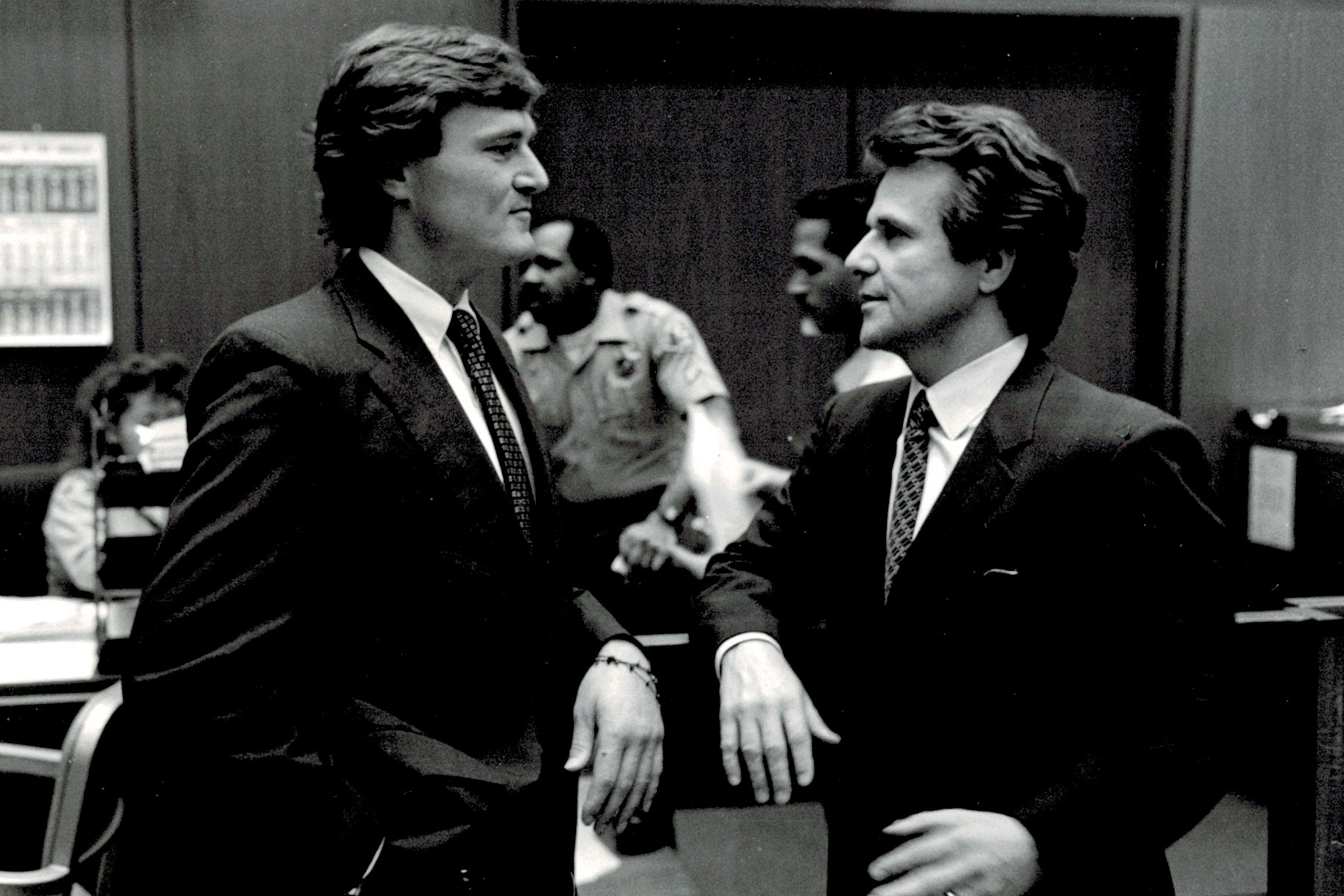Did you know that even with glaring new evidence, a criminal case may never see the walls of a courtroom again once acquitted? It’s not a plot twist from your favorite legal drama but a real-life principle embedded in the heart of our justice system – the Double Jeopardy rule.
Double jeopardy is in place to strike the delicate balance between the relentless pursuit of truth and the civil rights of the accused. This article delves into the depths of the double jeopardy principle, exploring its historical origins, legal applications, and case study examples from headline-grabbing trials. In this article, you’ll gain insights into how this legal fortress impacts real-world cases, shedding light on public perception and ongoing debates around its role within the justice system.

Understanding Double Jeopardy
The double jeopardy principle, included in the Fifth Amendment to the United States Constitution, states that no person shall “be subject for the same offence to be twice put in jeopardy of life or limb”. Essentially, the principle is a procedural defense that prevents an accused person from being tried again on the same charges, following a valid acquittal or conviction, in the same jurisdiction.
This concept originates from ancient Roman law and was later adopted in the English common law before it made its way into the U.S. legal framework. It’s a principle that safeguards individuals from the stress and financial burden of multiple trials and potential unfair advantage browbeating by prosecutors with successive investigations.
The role of the double jeopardy clause in the U.S. legal system is significant. All U.S. states respect this principle as it is an integral part of the constitutional protections offered to defendants in the American criminal justice system.
Practical Application of Double Jeopardy
Let’s illustrate the application of double jeopardy using a hypothetical scenario. Consider a person named John Doe. He goes on trial for theft. Due to insufficient evidence, he is acquitted. After the trial new evidence emerges that suggests John did, in fact, commit the theft. Despite this, the principle of double jeopardy protects John. He cannot face prosecution again for the same crime even if new incriminating evidence is found.
This scenario reflects the power of double jeopardy in assuring the finality of a court’s verdict. It prevents people from facing continual legal prosecution for a single crime. This essential principle safeguards the innocent, asserting it is better to risk the guilty going unpunished than to punish the innocent. In this way, it underscores the need for exactness and finality in legal proceedings, protecting citizens from potential abuse of judicial power.
What crimes does double jeopardy apply to?
Double jeopardy applies to all types of crimes—be it misdemeanors, felonies or any offenses punishable under the law. As long as the charges consist of identical elements or represent the “same offense”, the enforcement of double jeopardy prevails.
For instance, let’s consider two types of crime: robbery and armed robbery. These are seen as distinct offenses due to the additional factor of “armed” in the latter. Consequently, a person could potentially be tried for both crimes without violating the double jeopardy clause, if the crimes were tried together in one trial.
Double Jeopardy Laws State-by-State
Even though double jeopardy is a constitutional principle, its interpretation varies across states leading to different applications. These variations stem from different understandings of key legal elements such as what constitutes the ‘same offense’. Jurisdictions also differ on criteria like the ‘Blockburger test‘, used to determine the presence of the same offense. Notably, the principle of ‘separate sovereigns’ sometimes allows for state and federal charges for identical crimes. This complexity in legal interpretation significantly impacts the outcome of true crime cases, often leading to strong calls for legal reform, particularly in high-profile situations.
Case Studies: Real-World Examples of Double Jeopardy
Several renowned true crime cases have seen the application of the double jeopardy principle, providing valuable examples for understanding its real-world implications.
O.J. Simpson (1994-95)

Another case that comes to mind is the O.J. Simpson trial, where Simpson was acquitted in a criminal court for the murder of Nicole Brown Simpson and Ron Goldman. However, he was later found liable for their deaths in a civil court, and ordered to pay $33.5 million in damages.
Double Jeopardy Application: The cases’ distinction as criminal and civil allowed the latter trial to proceed without violating the double jeopardy principle. Simpson’s acquittal in the criminal case did not prevent a successive civil case, highlighting the double jeopardy clause’s limited scope.
Furthermore, the intrigue surrounding the Simpson case resurfaced years later with the discovery of a knife on the property once owned by O.J. Simpson. While it sparked significant public interest, the legal consensus confirmed the enduring hold of double jeopardy. Regardless of whether the found knife was connected to the notorious murders, Simpson could not be tried again for the same offense—reasserting the untouchable stance of double jeopardy in our legal apparatus.
Isaac Turnbaugh (2011)

Another case that comes to mind is the Isaac Turnbaugh trial, where Turnbaugh was acquitted in 2004 for the first-degree murder charge in the death of Declan Lyons. However, years later, in 2011, Turnbaugh voluntarily confessed to the crime on multiple occasions, reigniting public interest in the case.
Double Jeopardy Application: Despite Turnbaugh’s voluntary confessions after his acquittal, state prosecutors were unable to take legal action against him for the same murder charges because of the double jeopardy principle. Vermont Attorney General William Sorrell stated, “You only get one bite of the apple. It’s double jeopardy…You can go out on the courthouse steps and confess, and the state can’t do anything.”
The case illustrates the power of the double jeopardy principle in legal proceedings. Even if an acquitted individual later confesses to the same crime, the law prevents any possibility of a re-trial or second prosecution for the same offense. This constitutional protection upholds the sanctity and finality of a jury’s decision and establishes a critical boundary within the justice system.
Ray Buckey/McMartin Preschool Case (1983-1990)

Ray Buckey, a worker in the McMartin Preschool in California, was at the center of one of the longest and most expensive criminal trials in American history. Accused of egregious child molestation charges, Buckey faced two trials – the first resulted in a hung jury, but the second absolved him entirely.
Double Jeopardy Application: Although typically double jeopardy prevents re-trials, the first trial’s result—a hung jury—did not constitute an official verdict. Thus, the second trial did not infringe on the double jeopardy principle, showcasing its precise application.
Controversies and Criticisms
The debate around retrying cases and changing double jeopardy laws intensifies when new evidence arises after trial. Critics argue the principle may safeguard those guilty of heinous crimes. They advocate for amending laws to allow retrials where fresh, compelling evidence surfaces. On the other hand, proponents of existing double jeopardy provisions stress the need to protect individuals from potential state abuse and harassment. They underline the principle’s importance in ensuring finality in legal proceedings and averting endless retrials. The debate remains contentious, balancing considerations of justice, individual liberty, and public safety.
Final Thoughts
Make no mistake; this isn’t just a dry, theoretical concept. Double jeopardy has been tested, challenged, and reinforced across numerous notable legal battles here in the United States.
So, is double jeopardy a necessary defense against the state’s potential to wield abusive power, or does it provide an undeserved escape route for those who managed to slip through the justice system’s cracks once? The debate continues.

